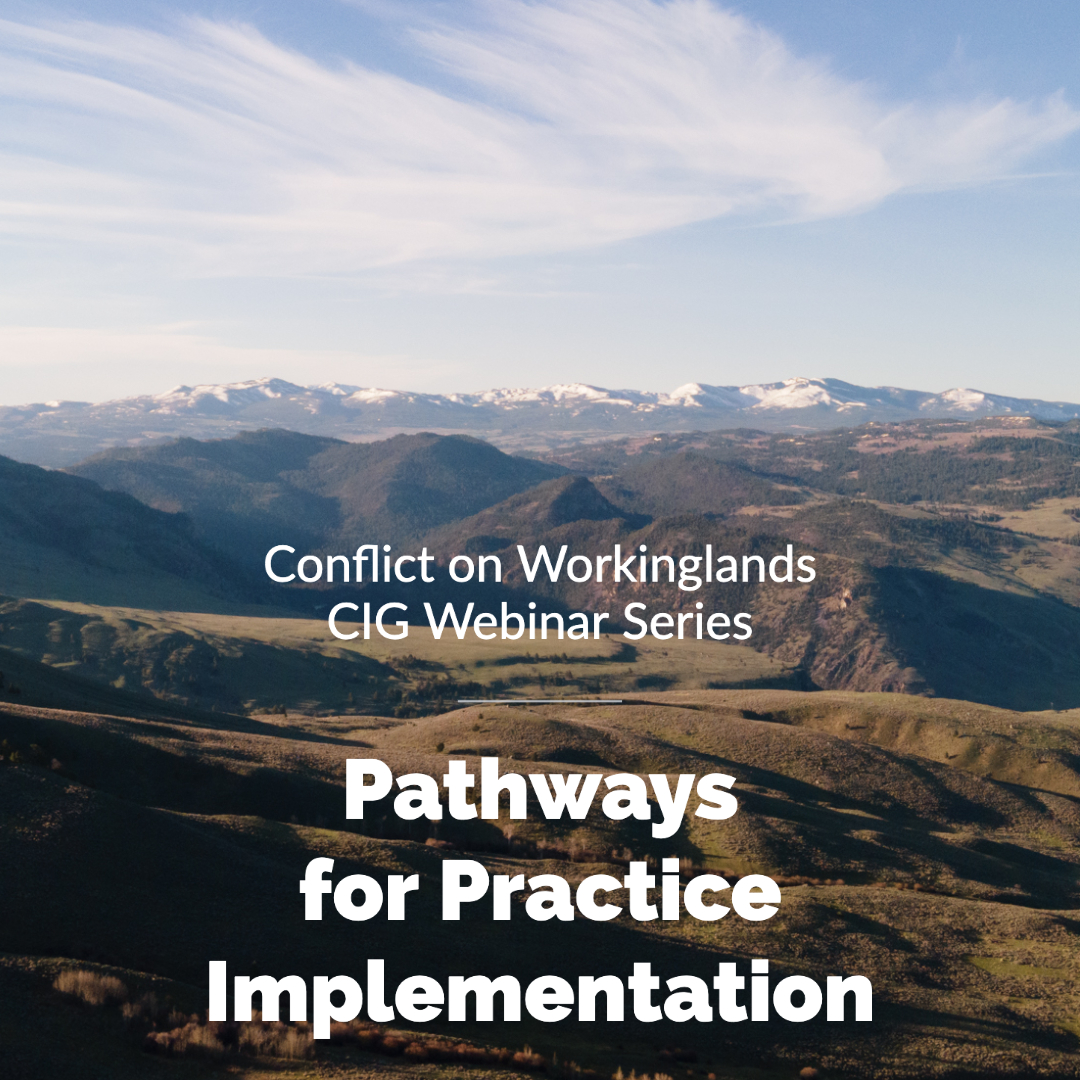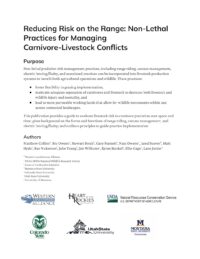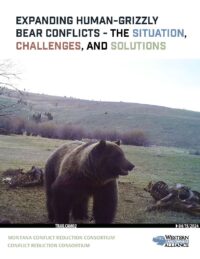There are emerging opportunities for technical and financial assistance through Farm Bill programs to support producers in the implementation of range riding, carcass management, and various types of electric fencing/fladry. Discussion will include guidelines for conflict risk assessment with utility for conservation planning, through evaluation of habitat and ranch production factors, along with approaches to site-specific implementation.
Non-lethal conflict prevention practices are one element of the 4C’s framework, a system-based approach to conflict reduction. The 4C’s – compensation, conflict prevention, control (lethal) and collaboration – comprise a framework that supports conservation and provides opportunities to address the social, ecological, and economic situation unique to each region, community, and operation.
If you would like more information on the webinars, please contact:
Bre Owens, bre@westernlandowners.org
or
Jared Beaver, jared.beaver@montana.edu
| conflict prevention, Working Wild Challenge
Reducing Risk on the Range: Non-lethal Practices for Managing Carnivore-Livestock Conflicts
Non-lethal predation risk management practices, including range riding, carcass management,electric fencing/fladry, and associated practices can be incorporated into livestock productionsystems to benefit both agricultural operations and wildlife. These practices: This…
| Idaho, Montana, Oregon, Washington, Wyoming
Expanding Human-Grizzly Bear Conflicts: The Situation, Challenges and Solutions
Grizzly bears are expanding their ranges into historic habitats outside of recovery zones, and much of the expansion is happening on private working lands and the urban wildland interface. Western…


